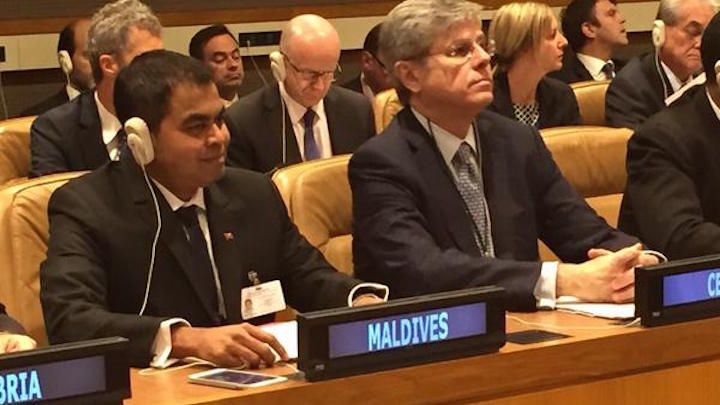Maldives pledges 10 percent reduction in carbon emissions by 2030
The Maldives has pledged to reduce greenhouse gas emissions by 10 percent before 2030 in a new action plan. The target falls far short of ambitious plans announced by President Mohamed Nasheed in early 2009 to become carbon neutral by 2020, which has since been scrapped by successive administrations.

29 Sep 2015, 09:00
The Maldives has pledged to reduce greenhouse gas (GHG) emissions by 10 percent before 2030 in a new action plan submitted ahead of crucial climate change negotiations in December.
A universal climate change agreement is expected to be reached at the 21st session of the Conference of the Parties to the United Nations Framework Convention on Climate Change (COP21) in Paris, France.
The 10 percent target falls far short of ambitious plans announced by President Mohamed Nasheed in early 2009 to become carbon neutral by 2020, which has since been scrapped by successive administrations.
According to the Maldives’ Intended Nationally Determined Contribution (INDC) – submitted to the UNFCCC secretariat this week – the country will generate about 3.3 million tonnes of carbon dioxide emissions by 2030 under the business as usual (BAU) scenario, based on the estimated growth rate of imported fossil fuel usage.
Become a member
Get full access to our archive and personalise your experience.
Already a member?
Discussion
No comments yet. Be the first to share your thoughts!
No comments yet. Be the first to join the conversation!
Join the Conversation
Sign in to share your thoughts under an alias and take part in the discussion. Independent journalism thrives on open, respectful debate — your voice matters.




